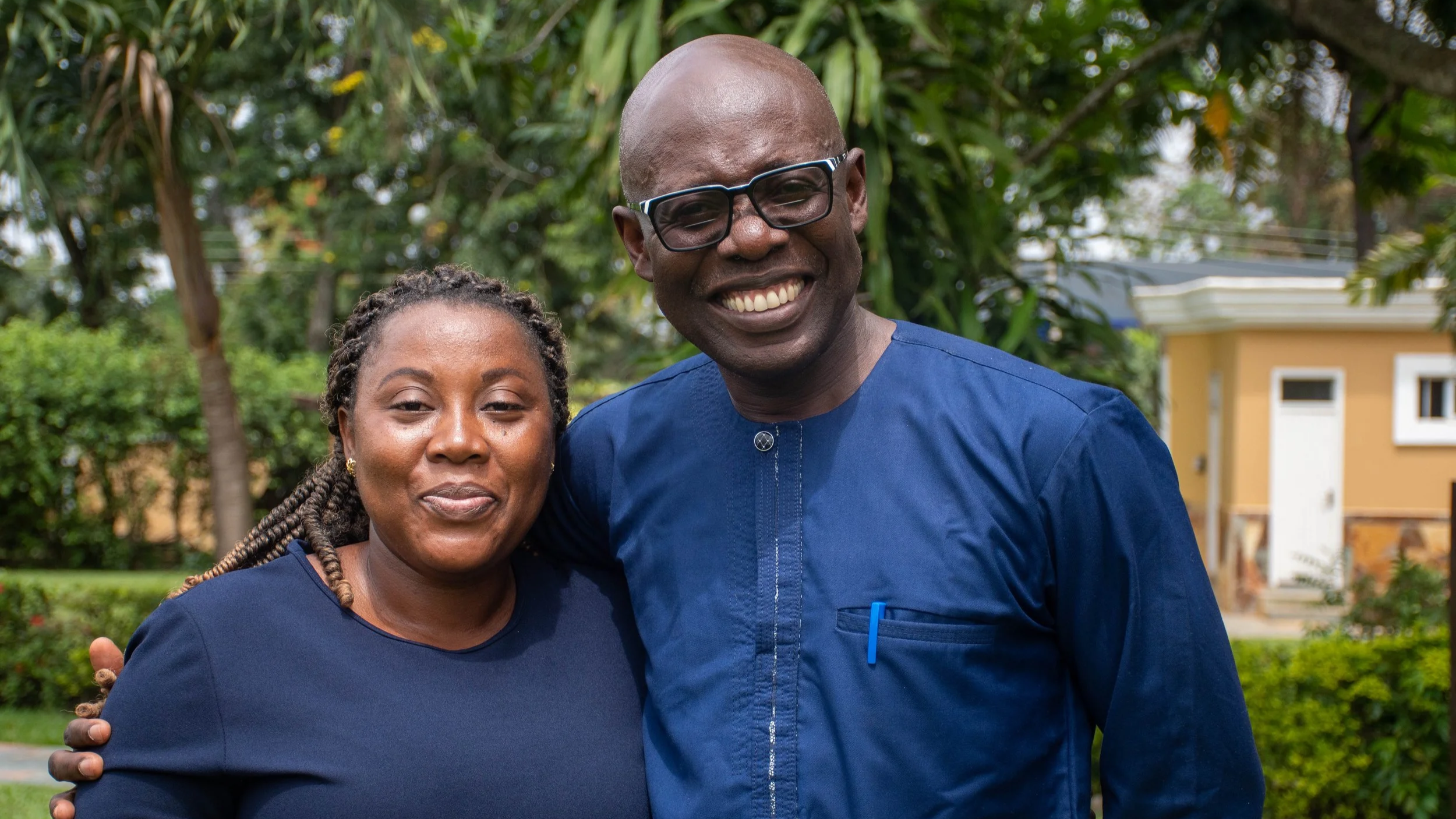Stronger leadership, healthier systems: How Ghana’s new regions are building from the ground up
Words by Ronke Ampiah Adamaley, Amp Health Management Partner, Ghana Health Service
In 2018, Ghana created six new regions to bring government services closer to communities. While this move promised to strengthen governance at the local level and more equitably distribute resources, it also revealed significant challenges. Many of the new districts were remote and rural, with limited infrastructure, few hospitals, and difficulties in attracting healthcare workers.
Basic amenities such as housing, clean water, and electricity were also scarce, discouraging staff postings to underserved areas. In the North East Region, the doctor-to-population ratio stood at 1:42,049 in 2022 – well below the national target of 1:7,500. At the same time, regional health staff were newly appointed and lacked experience managing complex health systems, leading to fragmented planning, staffing shortages, and challenges in delivering consistent, high-quality care.
A strategic partnership for local leadership
Recognising that stronger leadership would be key to overcoming these challenges, the Ghana Health Service (GHS) partnered with Amp Health in July 2022, with funding support from the Vitol Foundation. The goal: to strengthen the leadership and management (L&M) capacity of Regional Health Management Teams (RHMTs) in the newly created regions.
Amp Health embedded a Management Partner (MP), Ronke Ampiah Adamaley, within the GHS to provide coaching, mentorship, and capacity-building support. Six experienced former GHS directors were also recruited as mentors to guide Regional Directors of Health Services (RDHSs) and their teams, drawing on their years of local expertise to support problem-solving and planning.
From L-R: Ronke Ampiah Adamaley, Amp Health MP; Dr Samuel Kwabena Boakye Boateng, former Regional Director of Ahafo region (current Director of PPMED); Dr Shola Dele-Olowu, Amp Health Director of Regional Initiatives
““Amp Health’s mentoring has guided us through organisational processes, our role as senior leaders, functions, and aligning with our vision, mission, and core values. This clarity has been helpful for us as leaders, ultimately impacting the implementation of health programming across regions and districts. ”
Building skills, strengthening systems
Before launching regional action plans, Amp Health convened a three-day workshop to equip mentors with coaching skills and share diagnostic tools. Early assessments highlighted pressing challenges: incomplete strategic plans, weak team cohesion, limited performance management practices, and the need for improved stakeholder engagement.
In response, Amp Health and the GHS co-created tailored action plans for each region, grounded in local realities. Support included:
Coaching and mentorship to strengthen leadership skills
Experiential learning workshops on strategy, communication, and performance management
Peer learning sessions for teams to exchange insights and problem-solve together
Regular check-ins – both virtual and in-person – to sustain momentum
Over time, teams began to demonstrate tangible progress.
Sharper strategic focus: Four of six regions advanced their strategic plans, applying new tools such as environmental scans and bottleneck analyses
Stronger teamwork and ownership: One region conducted a formal review of senior management job descriptions, clarifying roles and strengthening accountability; others began holding weekly meetings to foster transparency and problem-solving
Improved reporting: Standardised templates enhanced documentation, resulting in higher-quality data and more timely decision-making
More effective stakeholder engagement: Directors gained confidence in negotiation and advocacy
“Through this experience, I’ve learned valuable lessons about securing funding and delegating tasks effectively. It’s essential to clearly communicate expectations to ensure successful outcomes and support team members to overcome obstacles.”
From regional change to national momentum
Beyond strengthening individual regions, the partnership also helped catalyse system-wide change. Insights from the programme informed the launch of the Ghana Health Service Institute (GHSI), a new platform designed to institutionalise leadership development across the country’s health system.
As Dr. Anthony Ofosu explained: “We are setting up the GHSI to train leaders. Anyone aspiring to be a district director or deputy director needs to have certain skillsets. Amp Health has brought facilitation skills and tools that we are incorporating into the GHSI.”
Ms Mabel Narh, Senior Human Resource Manager and Dr Anthony Adofo Ofosu, Deputy Director of the Ghana Health Service (since retired)
Lessons in localisation and leadership
Relationships build results: Trust between mentors, mentees, and Amp Health created space for honest dialogue, learning, and growth
Resilience matters: Teams adapted to shifting challenges, turning obstacles into opportunities for learning
Reflection is powerful: Regular check-ins and peer exchanges kept teams aligned and focused
Why subnational leadership matters
Decentralisation can only succeed when local teams have the skills and support to lead. Ghana’s experience demonstrates that building regional leadership is not just a nice-to-have – it is a necessity for achieving equitable health outcomes.
Today, Amp Health’s partnership with GHS is a powerful example of what becomes possible when public health teams are supported to lead from the ground up. It reminds us that transformation doesn’t only come from top-down reform, but from equipping those closest to communities with the skills, confidence, and tools to drive meaningful change.





